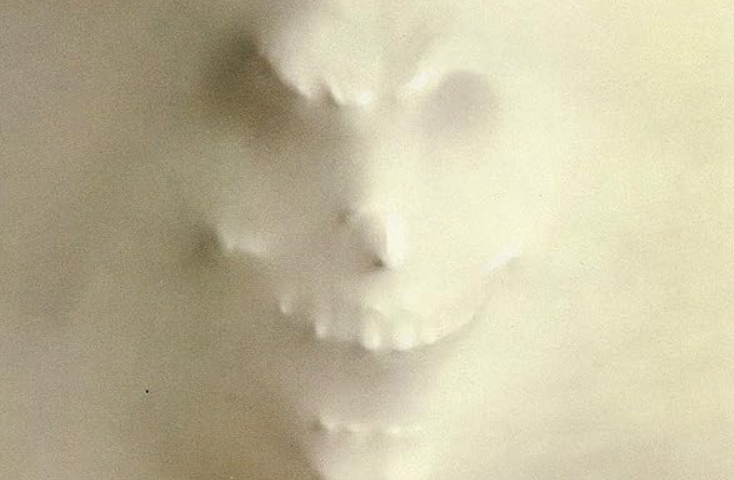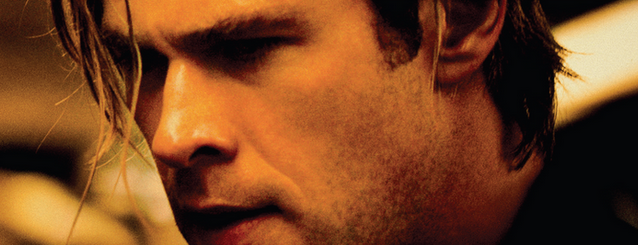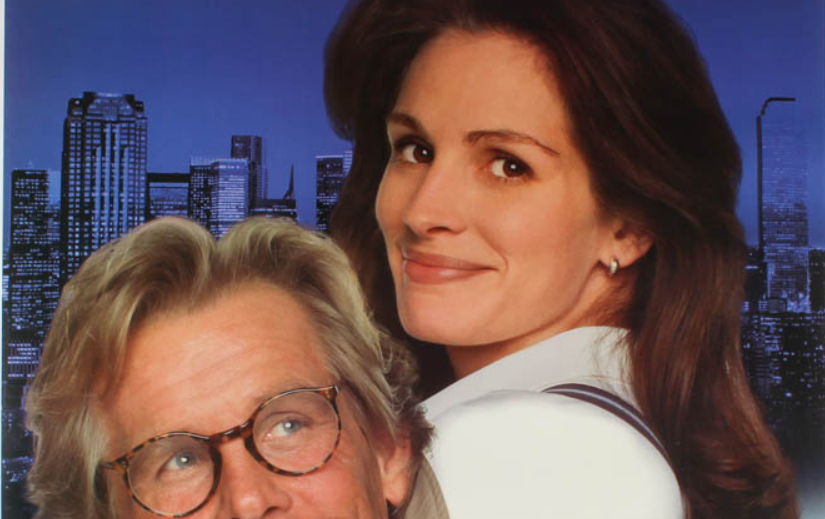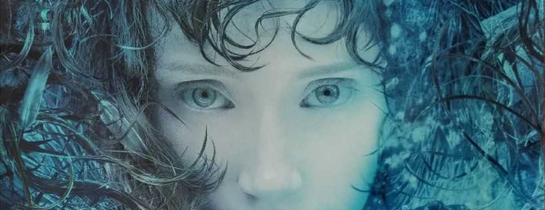Nicolas Cage
He's the actor that launched a thousand memes, bought a dinosaur, went broke and is now beloved by all. Let's open up his movie closet to expose the skeleton rattling around inside it...
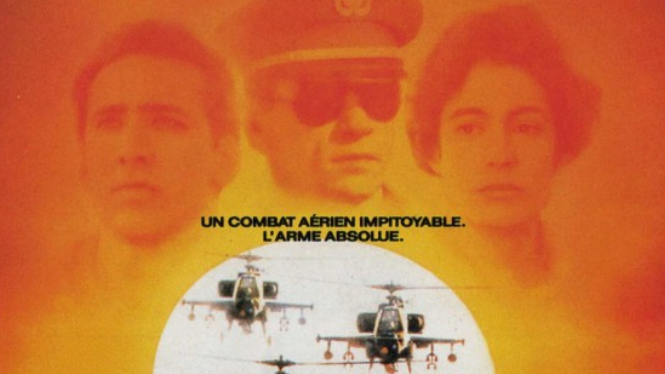
Everybody knows Nicolas Cage. You’d have to have lived in a cave for the last forty or so years to be unaware of Cage and his work. His has been a long career, marked with upswings and downturns and terrible problems with money and contraband chunks of dinosaurs. But, man, what a career.
What many people may not know about Cage is that his uncle is Francis Ford Coppola, making Cage the opposite of a nepo baby. Cage deliberately changed his name to avoid accusations of nepotism. He appeared in his first films in the 1980s, in Fast Times at Ridgemont High and Valley Girl, before Uncle Francis noticed him and cast him a few times.
Would it be fair to say that Cage has a signature air of madness or mad intensity to him? I think so, and not in a disparaging way. For example, after being cast in 1984’s Birdy opposite Matthew Modine, Cage turned up to the shoot missing his two front teeth, which he freely chose to have removed for his character. Such commitment goes way beyond the normal demands of method acting. And it is Birdy which probably launched Cage into stardom.
His body of work in the 80s is extensive and quite impressive, and his star-status was cemented in 1987 thanks to his performances in Raising Arizona and Moonstruck, for which he earned a Golden Globe nomination. He got to the peak of the mountain, and then came the long slide down.
His string of flops began in 1989 with the cult classic Vampire’s Kiss, followed by Wild at Heart and Fire Birds (hem hem) and a bunch of stuff neither you nor I have heard of. Zandalee. Honeymoon in Vegas. Deadfall. Amos & Andrew. Guarding Tess. Trapped in Paradise. The late 80s and early 90s were rough for Cage. His performances, I’m sure, were up to snuff, or were at least as committed and ferocious as usual, but he’d lost his ability to pick good projects.
And then he had his renaissance in Leaving Las Vegas, as an alcoholic screenwriter drinking himself to death, for which he deservedly won an Oscar. How would you follow up such a career-defining performance? What’s that? A string of nonsensical but brilliant action movies? Why, yes, that’s what Cage did too. The Rock. Con Air. Face/Off. Gone in 60 Seconds. National Treasure. And in your free time, would you consider winning over the critics with quirkier movies too? You would? Snake Eyes. Bringing Out the Dead. Adaptation. Lord of War. 1995 to 2005 was a great time to be Nic Cage.
But…just when you get to the top again, you end up sliding back down thanks to working in even more stinkers. And then the legal and financial troubles. Unpaid federal taxes, for one. Court action alleging financial malfeasance versus his business manager. The illegal purchase of a Tarbosaurus skull. Cage reportedly spent $150 million on houses and islands and so on, fell into debt, and entered the next phase of his career.
This would be when Cage took almost any project offered to him in order to pay his debts, or so it is said, starting in the early 2010s. There’s a lot of hot garbage in his filmography at this point, stuff like Left Behind, based on the series of novels about the Rapture. It’s not all bad; 2018’s Mandy is well-regarded, and there’s a Spiderverse movie in there, but he signed up to appear in a huge number of movies. Eight in 2018, seven in 2019.
Things have been looking up in the 2020s. His projects, while still demonstrating a wonderful eclecticism, are of much better quality than pre-pandemic. We, the ordinary movie-goer, get to appreciate Cage’s signature style, referred to as Nouveau Shamanic. No matter what he does from now on, we’ll always have his gloriously unhinged turn in Face/Off, or his magnificent hair in Con Air, or his chilly brilliance in Lord of War.
But I’m not here for Lord of War. This is Not Forgotten. We’re here for the US Army’s petulant temper tantrum at Top Gun. We’re here for a two-minute cameo from a Saab Draken. We’re here for a movie I’ve actually already seen.
So, Top Gun. Born out of Don Simpson and Jerry Bruckheimer’s love for a 1983 magazine article, it has remained in the collective consciousness since launch in 1986. Why wouldn’t it? Directed with insane verve by Tony Scott, stuffed with thrilling dogfights and bristling with oiled chests, bolstered by its homoerotic undertones, Top Gun made Tom Cruise into a megastar and made signing up to be a naval aviator incredibly sexy. It was a cool movie when I was a lad. It’s aged quite badly, but its sequel is a prime example of big-budget Hollywood nonsense done well, just like the original.
Can you blame the US Army for feeling all inadequate and jealous next to it? Tanks aren’t as sexy as F14s. Apache helicopters, though… that might just work. It’s very hard now to get details on exactly what process led to the writing and production of the Army’s answer to Top Gun, yet there was a script and there was a casting and there was a production and Nicolas Cage is in it.
I know this film as Wings of the Apache. Americans know it as Fire Birds. In it, Cage plays chopper pilot Jake Preston. During a raid against South American drug cartels, Preston’s mission is ambushed and ravaged by evil (and mute) pilot Stoller in his Scorpion helicopter. Preston escapes with his life and is assigned to a new task force, set up to take down the cartels.
Preston must learn air-to-air combat in the Apache. His trainer is Brad Miller (Tommy Lee Jones), a gruff veteran chopper pilot, who puts him through his paces. Meanwhile, Preston bumps into his ex, Guthrie (Sean Young), another chopper pilot and he tries to rekindle their romance.
After having a few issues in training, and after sexually harassing the shit out of Guthrie, Preston passes his final assessment in the Apache and also manages to seduce Guthrie just in time for the final mission to begin.
Off they go, back to South America. The task force’s base is attacked by…something, and Preston and Little head out to do battle, with Guthrie acting as their spotter. But Stoller shows up in his Scorpion and shoots down Little. Then a pair of Saab Drakens turn up and look really cool before Preston destroys one and Guthrie shoots down the second. Preston does air-to-air combat with Stoller and defeats him and the story ends, drugs are bad, oo-rah US Army, America fuck yeah.
To be honest, this movie is basically 86 minutes of crap with rotor blades, with one huge exception. Look how little story there is. It’s Preston flies helicopters until he can fly helicopters good enough to beat the other good helicopter fliers. I shouldn’t be surprised. The US Navy had a huge amount of input on how Top Gun was produced and the same would be true of the US Army for this movie. If a film-maker wants access to military equipment and locations, then you dance to the military’s tune. There can be no criticism of the Army in this film, nor failure by the Army. The film-makers handcuffed themselves and denied Preston’s character any room for personal or emotional growth.
It's a huge issue, story-wise. Top Gun handled its characters in a superior way. Things go wrong for our heroes in Top Gun. Maverick’s bad decisions lead to Goose’s death. He doubts himself. He fights his inner demons while he competes to be Top Gun. Top Gun has a story. Fire Birds/Wings of the Apache does not – it has a series of plot points that happen one after the other.
Preston’s relationship with Guthrie is a big part of the story and it sucks. Cage and Young have almost zero chemistry, which dooms this story arc from the off. It doesn’t make sense for Guthrie to want to be with Preston. Military regulations probably forbid them being together in any case, and the way Preston pursues and demeans Guthrie would probably see him reprimanded. But the script doesn’t care. Producers say ‘ooga booga Hollywood movie have love story’ and Preston beds Guthrie and yuck.
I don’t blame Sean Young for the terrible depiction of the relationship. It’s poorly written from the first beat to the last and there’s very little most actors could do with such gross, shoddy material. Hell, this includes Cage himself. He’s an actor who is capable of broad, goofy comedy, or quiet intensity, or absolute manic insanity, and here in Fire Birds, his performance is dominated by an utterly flat affect. I don’t know whether it was the limitations of the script or the director, but Cage’s acting here is shockingly restrained and wooden. He has a few moments, but they come off as false or forced, almost like he’s doing a caricature of himself. Like when he’s in a flight sim and starts bellowing “I am the greatest!”. It’s Cage, but not as we know it.
Tommy Lee Jones, though. My God, I adore him in this terrible, boring, braindead movie. Nic Cage was already a great actor when he made this, and he couldn’t bring a spark to the moribund script. Jones smashes every line out of the park like they were 70mph belt-high, dead-straight fastballs. I have no idea how Jones imbues every single piece of dialogue with such authority, such zing and zest. His character, Little, is nothing more than a walking cliché, an old soldier desperate for one last shot at glory. Many of his lines are mere exposition, yet Little, through Jones’ performance, is the single bright spot in the movie. If you’ve seen Jones in Men in Black, Little is essentially the same character, but played dead straight, and somehow he makes the part sing.
And that’s as far as it goes, in terms of entertainment. The Army’s Apache pilots certainly fly their helicopters nicely enough. The issue is that air combat between fighter planes has a visual grammar which has been long established, and Top Gun follows those rules to great effect. The helicopter, as a tool for action, has a far shorter pedigree, regardless of the popularity of Blue Thunder or Airwolf. Air-to-air helicopter sequences, as shot for this movie, are confusing and lacking in thrill. Director David Greene has many fine qualities, like getting Phil Collins to contribute songs to the soundtrack, but filming Apaches in an exciting way isn’t one of them.
Yeah, this one is for Cage obsessives only. It’s too boring to be worth hunting down. Cage is simply too uninterested in proceedings to commit all of his freestyle jazz madness to it. There are so many movies in the Cage filmography you could have fun watching, and Fire Birds is just not among them.
